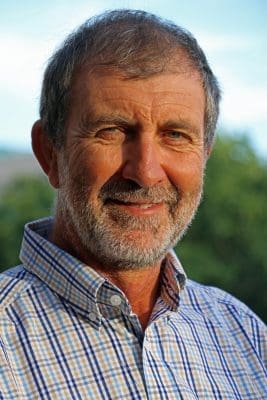A NEW report released by the Intergovernmental Panel on Climate Change (IPCC) overnight focuses on how changes to land management can contribute to reducing greenhouse gas emissions.
Despite sparking a rash of new headlines claiming the report urges the world to eat less meat or even ‘to go vegetarian’, the report published online overnight does not mention meat.
The report does note that agriculture, forestry and other types of land use account for 23 percent of human greenhouse gas emissions.
It says that when land is allowed to become degraded it becomes less productive, restricts what can be grown and reduces the soil’s ability to absorb carbon.
“This exacerbates climate change, while climate change in turn exacerbates land degradation in many different ways,” the report says.
It says about one third of food that is produced is lost or wasted.
Reducing this loss and waste would reduce greenhouse gas emissions and improve food security.
“Some dietary choices require more land and water, and cause more emissions of heat-trapping gases than others,” said Debra Roberts, Co-Chair of IPCC Working Group II.
“Balanced diets featuring plant-based foods, such as coarse grains, legumes, fruits and vegetables, and animal-sourced food produced sustainably in low greenhouse gas emission systems, present major opportunities for adaptation to and limiting climate change,” she said.
Co-Chair of IPCC Working Group I, Panmao Zhai, said there is real potential here through more sustainable land use, reducing over-consumption and waste of food, eliminating the clearing and burning of forests, preventing over-harvesting of fuelwood, and reducing greenhouse gas emissions, to address land related climate change issues.
Plant-based foods and sustainable animal-sourced food could free up several million square kilometres of land by 2050 and cut 0.7-8.0 gigatonnes a year of carbon dioxide equivalent, the report said.
Cattle Council of Australia president Tony Hegarty said red meat will continue to play a vital role in meeting global needs in terms of the demand for dietary protein, as well as the management of vast swathes of the Earth’s landmass and the conversion of inedible plants into protein suitable for human consumption.
“Australian beef in particular has compelling human health and environmental imperatives and will continue to form part of a balanced diet for Australians and our customers overseas. It can be difficult to communicate those credentials, but we’re committed to getting the message across effectively,” he said.
“Part of that effort is via the Red Meat Advisory Council’s Australian Beef Sustainability Framework, which measures and communicates the Australian beef industry’s commitment to environmental, social and economic sustainability.
“Since 1981, the Australian beef industry has reduced emission intensity by 14 per cent and reduced emissions due to land use change by 42 per cent.
“The industry is working hard to meet its goal of becoming carbon neutral by 2030.”


Whether we want to hear it or not this article is cherry picking the report’s findings regarding red meats sustainability and contribution to greenhouse gas production and waste. Intensive red meat production did NOT receive a tick of approval from the IPCC whereas grass fed beef and lamb are considered beneficial in a well managed grazing enterprise. In particular I believe the Wagyu breed as the least efficient, with feed conversion rates a fraction of other breeds. This amount of time on feed also gives the general public a poor impression of the beef industries attitude to animal welfare apart from the waste of grain.
A very positive article for Australian beef. Finally science is recognising the benefits of our production systems.
Surely it is time for our government to grow a spine and withdraw from the IPCC and the Paris agreement.
Everyone should read “Should meat be on the menu?” by David Mason-Jones.
A most enlightening view on carbon sequestration.
Every farmer in Australia knows the importance of sustainability on his farm for the preservation of his and his families future. So too we all know the importance of organic matter to soil structure, soil fertility, soil water holding capacity and therefore productivity. Laying down organic matter in the soil is an imperative for all Australian Farmers. Each kilogram of organic matter we retain in our soils is a kg of CO2 taken out of the atmosphere, it is a carbon sink. A well managed pasture system producing grass fed beef is a carbon sink as long as we continue to increase soil organic matter as necessary to improve soild fertility and productivity!